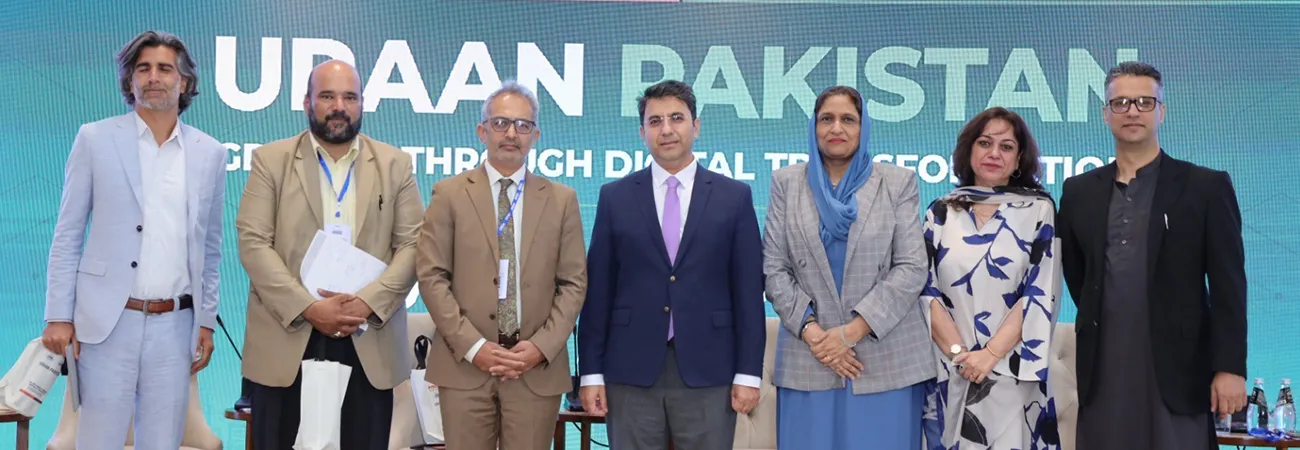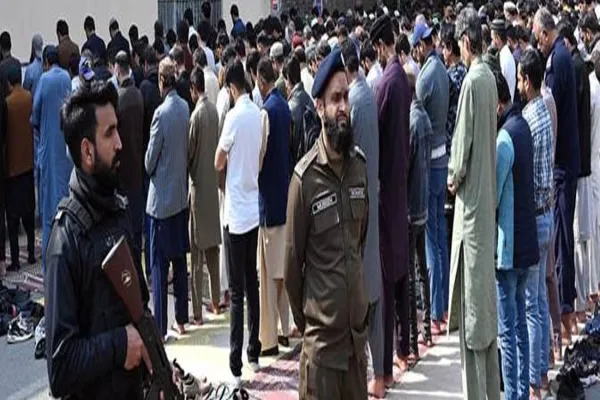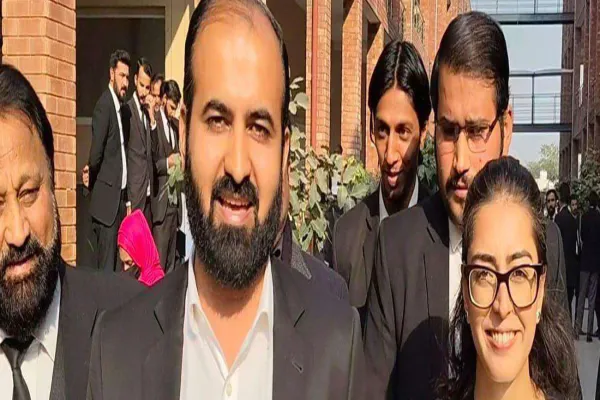i NEWS PAKISTAN
With the improvement of within existing sectors provides temporary gains, long-term growth depends on qualitative change through the creation of new sectors and diversified output, opined Professor Pier Paolo Saviotti of Utrecht University delivered the prestigious Allama Iqbal Lecture on the second day of the 38th Annual Conference of the Pakistan Society of Development Economists (PSDE), hosted by the Pakistan Institute of Development Economics (PIDE).
Saviotti described this phenomenon as "creative destruction," where the economy continuously regenerates itself through the emergence of new industries. Discussants Dr. Adnan Rafiq and Dr. Idrees Khawaja reinforced this perspective, highlighting the importance of innovation, ecosystem development, and public service delivery to sustain growth. Chairing the session, Dr. Safdar Sohail urged policymakers to go beyond efficiency and pursue sectoral reinvention as a strategic imperative. The said session held in collaboration with the Ministry of Planning, Development & Special Initiatives (MoPD&SI), the Asian Development Bank (ADB), Pakistan Poverty Alleviation Fund (PPAF), RASTA, CPEC Centre of Excellence, and the Bank of Punjab, the day focused on pressing national challenges including digital transformation, artificial intelligence (AI), and fiscal sustainability.
In the Quaid-e-Azam Lecture, Nobel Laureate Professor Michael Spence presented “Digital Transformations, AI, Productivity, and the Future of Work: A Conversation for Pakistan.” He explored the global AI landscape, stating that AI is a transformative force fundamentally altering productivity and labor markets. He differentiated between general AI and Generative AI (GenAI), emphasizing the latter's human-like cognitive capabilities. While routine, middle-income jobs may decline, he stressed that the future lies in human-machine collaboration, not complete automation. Dr. Khalid Hafeez and Dr. Huma Baqai, as discussants, noted the unequal global distribution of AI benefits and stressed the importance of national readiness. Chairing the session, Dr. Eatzaz Ahmed concluded that technological literacy and social learning are now as important as reading and writing in building a modern economy.
The second panel session of the day addressed one of Pakistan’s most critical issues: tax reform and public trust. Titled “Charting Pakistan’s Fiscal Trajectory: Enhancing Transparency & Trust,” the panel brought together experts including Dr. Hamid Ateeq Sarwar (FBR), Dr. Mahmood Khalid (PIDE), Mr. Tobias Haque (World Bank), Dr. Ali Salman (PRIME Institute), Ms. Hina Usmani (Usmani & Co.), and Dr. Ikram Ul Haq (Legal Tax Expert), moderated by Mr. Nasruminallah Mian (ADB). The discussion revealed that despite having the tools and diagnostics, Pakistan has yet to achieve meaningful tax digitization due to political resistance, institutional misalignment, outdated legal frameworks, and limited administrative incentives. The panel emphasized that digitization requires end-to-end system integration, real-time data usage, and automated workflows. A critical theme was the broken trust between taxpayers and the state, driven by a lack of transparency, unpredictable policies, and a disproportionate tax burden on the salaried class. Participants also pointed to fiscal fragmentation across provinces and the need for clarity in revenue-sharing mechanisms. They called for simplified tax codes, a fully integrated digital tax system, modernized labor regulations, and performance-based incentives to rebuild public confidence and support URAAN Pakistan’s trillion-dollar economic vision.
In the technical sessions, several critical themes emerged. Presentations on Pakistan’s gig economy noted that while the country ranks as the fourth-largest freelancing hub globally, it faces persistent challenges including unreliable internet, limited access to payment systems, job insecurity, and lack of legal protections. Experts called for updated labor laws, improved digital infrastructure, freelancer-focused training, and inclusive policies to harness the gig economy’s potential. Sessions on AI and upskilling highlighted the urgent need to integrate micro-credentials into Pakistan’s higher education system to address youth unemployment. Further discussions addressed the evolving role of AI in academic research, productivity, and ethical concerns raised, prompting calls for training on responsible use, light-touch institutional regulation, and curriculum integration.
Climate-focused research underscored how global value chains influence CO₂ emissions and highlighted the role of institutional quality and digital governance in emission reduction. The policy takeaway was clear: low-income countries must align digital governance with environmental policies and institutional reform to build green, resilient economies.
Credit: Independent News Pakistan (INP)









